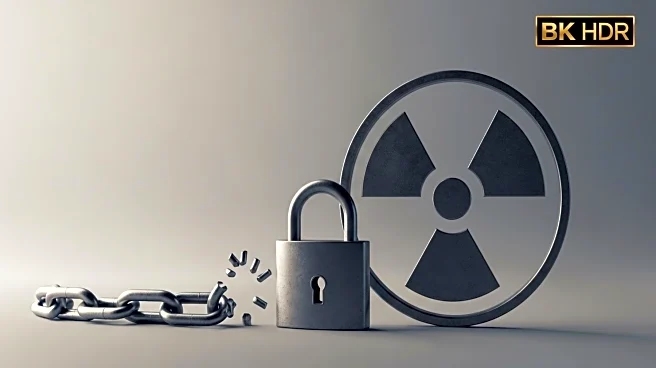What's Happening?
Following President Trump's military strikes on Iran's nuclear facilities, experts have concluded that Iran currently lacks the capability to produce weapons-grade uranium. The strikes, part of Operation Midnight Hammer, targeted key centrifuge plants, significantly impairing Iran's nuclear program. The analysis, led by nuclear expert David Albright, indicates that Iran's ability to enrich uranium has been severely degraded, though uncertainties remain regarding the extent of damage and remaining centrifuge capabilities.
Why It's Important?
This development marks a significant shift in the geopolitical landscape, potentially reducing the threat of nuclear proliferation in the Middle East. The strikes have disrupted Iran's nuclear ambitions, which could lead to changes in regional power dynamics and influence ongoing diplomatic efforts. The U.S. administration views this as a foreign policy victory, while critics caution against premature conclusions without comprehensive damage assessments.
What's Next?
Iran's cessation of cooperation with the International Atomic Energy Agency (IAEA) complicates efforts to monitor its nuclear activities. The U.S. and its allies may need to rely on alternative intelligence sources to assess Iran's capabilities. Diplomatic efforts to address the aftermath of the strikes and ensure long-term non-proliferation are likely to continue, with potential implications for U.S.-Iran relations and broader regional stability.









